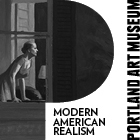
|
||
|
Portland art blog + news + exhibition reviews + galleries + contemporary northwest art
|
||
Two things that never change: money and more change Ditto on Tyler
Green's boredom with lazy art writing that is mostly focused on money. It's
the ideas and cultural shifts that legitimize art, museums, interesting cities and the writing
about them... not so much the transaction fees (those fade). Saatchi said it best, "The rich will always be with us."
Once that is accepted (the French and Bolshevik revolutions proved it) then
the real work of, "what ideas are being explored, what are the tough questions
of the age, etc." can be tackled. Sure, one has to be a little nuts to
go against the flow, but one also has to be more than bright and talented to
change the flow of that stream.
Also, I felt Holland Cotter's piece which spurred Tyler Green's words did bring up the most important point, where is the cultural leadership? Is that kind of leadership a thing any civilization can entrust to museums? Isn't that the domain of driven individuals who want to change the world? I loved Cotter's take on cynicism as "exhausting and pacifying." Portland from 2001-2003 went through a war between cynics and optimists. The optimists won (or at least the knee jerk cynics stopped freaking out long enough to become begrudging optimists who freak out less and ask better questions). Slowly but surely the city's other organs of culture have been catching up in with the continuing growth spurt. I'm pretty sure this ride wont be smooth so don't expect anything good to come from mildness or mere good intentions. To survive in the rapidly developing arts ecosystem here, cultural productions in Portland have to foreground an informed passion and a real esoteric depth (there are no accidents in these departments). Yes, I'm still working on my piece about Portland now (on Sunday it will be 8 years) and the main tasks at hand. Posted by Jeff Jahn on March 29, 2007 at 17:26 | Comments (2) Comments Jeff- Just two clarifying questions (and these are not meant to be criticisms): Posted by: graves sure... 1. it = cultural products or cultural productions (this is the sort of thing a copy editor would ask... a day later I see the possible confusion... I'll edit to clarify) 2. esoteric depth: Donald Judd is a good example, he did things his own way but had an ever deepening rationale for why he made his decisions. The result was his artistic practice was very precise and unusual. The more I look at Judd's work, the more rewarding it gets. Conversely, the more I think about Paris Hilton the more bland it all seems. Just taking over a town or the media's attention is just bombast. It takes something more to go beyond creating diversions... Posted by: Double J Post a comment Thanks for signing in, . Now you can comment. (sign out)
(If you haven't left a comment here before, you may need to be approved by
the site owner before your comment will appear. Until then, it won't appear
on the entry. Thanks for waiting.)
|
| s p o n s o r s |
 |
 |
 |
 |
 |
 |
 |
 |
 |
 |
 |
 |
 |
 |
 |
 |

|
Site Design: Jennifer Armbrust | • | Site Development: Philippe Blanc & Katherine Bovee | |


![[TypeKey Profile Page]](http://www.portlandart.net/nav-commenters.gif)